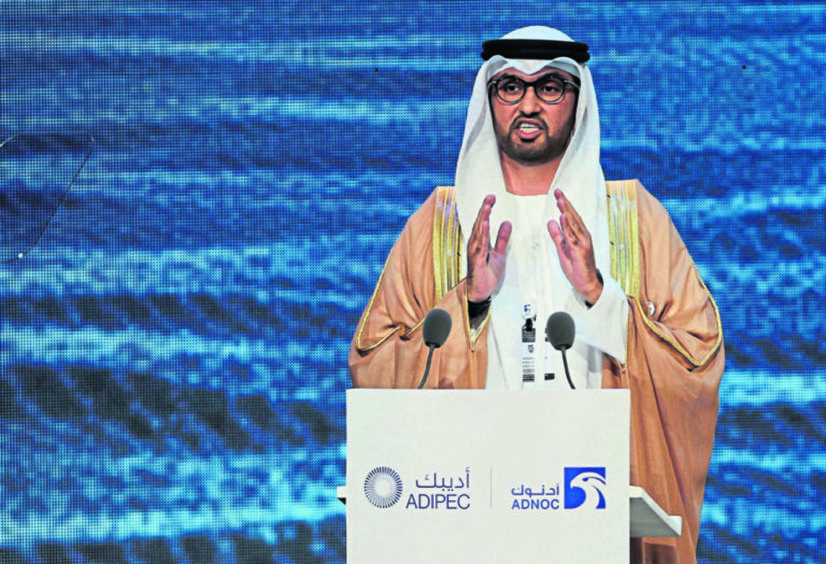
With COP 28 just around the corner and as pressure builds across the globe to slash carbon emissions, increasingly powerful calls and commitments designed to accelerate the pace of green energy change are on the table.
There are two in particular that have caught my eye.
The first is a huge global multi-stakeholder coalition that has published an open letter to world leaders calling for the tripling of renewable energy capacity to 11,000 GW by 2030 to be agreed at COP28 in the UAE late year.
Signatories are drawn from international governmental organisations, producers, buyers, supply chain actors, civil society, environmental groups, and youth.
They include publicly listed companies valued at over $12 trillion which drive the majority of global renewable energy development globally and have put their names to the letter.
The open letter states: “A step change this decade in renewable energy growth, combined with an increase in energy efficiency, will be the fastest and most cost-efficient way to decarbonise the global economy.”
The architect of the call for action is the powerful Global Renewables Alliance (GRA) headquartered in Brussels.
The second commitment is the transformational expansion of the, until now, Asia-dominated BRICS block leading to the addition of six new members in the Middle East, Africa and South America; effective January 1.
COP28’s host country, the UAE, alongside Saudi Arabia, Iran, Egypt, Ethiopia and Argentina are joining forces with existing members Brazil, Russia, India, China and South Africa (BRICS). The block will cover more than 50% of the human population.
BRICS+ represents a massive challenge to the West especially and absolutely changes the balance of both high and low carbon power going forward.
It will likely rile the US and EU that Saudi Arabia – still the world’s largest producer of oil and with big green ambitions – is about to get the key to the BRICS front door.
And be especially able to rub shoulders even more intimately with India, China and fellow oil major cum pariah, Russia.
Nearly two dozen countries had formally applied to join BRICS, but there had to be a consensus among its existing five members for candidate countries to be admitted. This is just the first round.
Of course, there are doubters and detractors to this massive expansion of BRICS to create BRICS+.
I believe this expansion delivers a strong signal to the West especially that the world order is changing. And this is more than just about energy, lest we forget, though it is the cornerstone of the human endeavour.
It is the sort of development that really will make the UK come across at COP28 as the Little Britain that it really is.
A puffed-up and basically incompetent player in green energy except in its ability to install in its territory almost exclusively foreign-developed, manufactured, invested and owned green energy technologies with minimal domestic content.
And then we totally screwed up our latest offshore wind round with no bids tabled.
Oh, and the Sunak Administration killed off the home energy efficiency taskforce just six months after it was formed.
According to IRENA’s (International Renewable Energy Agency) 2023 World Energy Transition Outlook, an immediate correction is needed to limit global warming to 1.5°C. Hence the call to triple total global renewable power capacity by 2030, plus double energy efficiency improvement rates.
IRENA has calculated that about $4 trillion of annual investment in transition technologies will be needed to achieve the rapid deployment of wind, solar, hydropower, geothermal, etc. and firmly establish at-scale, large-scale green hydrogen and high-capacity energy storage beyond 2030.
On BRICS+, I note that Norwegian analyst Rystad records that it expects to generate more than 80% of its power from renewable sources by 2050, with total capacity reaching 11 terawatts (TW).
This is more than double the combined 4.5TW expected from the Group of Seven (G7) nations Canada, France, Germany, Italy, Japan, the UK and the US.
The US is the world’s largest economy, but China is snapping at its heels. We forget that India is becoming a massive economic power in its own right. And Saudi Arabia’s position as the world’s swing producer is still undisputed and Russia’s economy remains among the top ten.
BRICS+ will without doubt trigger massive changes to the global energy landscape and I can’t help but believe that the gauntlet letter just thrown down by the GRA will accelerate that process.
Hold on to your hats, this is going to be a dramatic ride.
Recommended for you
